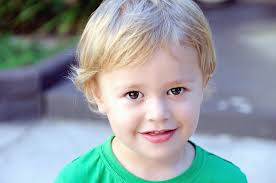Autistic and gifted children prefer to be alone and don't like having friends?
It is a mistake to think that people with Autistic Spectrum Disorder or gifted people do not like having friends. Both autistic and gifted people can make friends and have healthy social ties. They can have friends and express their feelings towards people.
According to Crompton et. al (2020) many autistic people are motivated to have close friends, relationships and family ties, despite the clinical characterization of autism as a condition that negatively affects social interaction.
There are cases of autistic people who have difficulties in social skills, this fact can make their interpersonal relationship difficult, however, this does not mean that they do not like having friends (Foley-Nicpon, & Assouline, 2020).
Sometimes their way of making friends can express shyness, but this can be due to the inability to communicate their desire for relationships in the same way as other people. (autismspeaks.org, 2021).
In case of gifted people, in general, they are people who like to communicate and make friends (Kane, 2018; Peterson, 2014; Piechowski, 2014; Piske & Kane, 2020; Piske, 2018, 2020).
There may be cases of social isolation, and one reason is that they feel misunderstood by the people around them. This fact can even generate disagreements in their social group, many people may not understand the reason for their isolation.
It is recommended to talk to gifted people in a very friendly way and put yourself in their places. Every interaction requires empathy and understanding of all people who must be aware of the specificity and profile that each human being presents, nobody is equal to anyone. We can all express and communicate in different ways.
References:
Autismspeaks.org (2021). 11 myths about Autism. https://www.autismspeaks.org/blog/11-myths-about-autism
Crompton, C. J., Hallett, S., Ropar, D., Flynn, E., & Fletcher-Watson, S. (2020). ‘I never realised everybody felt as happy as I do when I am around autistic people’: A thematic analysis of autistic adults’ relationships with autistic and neurotypical friends and family. Autism, 24(6), 1438–1448. https://doi.org/10.1177/1362361320908976
Foley-Nicpon, M., & Assouline, S. G. (2020). High ability students with coexisting disabilities: Implications for school psychological practice. Psychology in the Schools, 57(10), 1615-1626.
Kane, M. (2018). Supporting the affective needs of creatively children at home and at school. In F. H. R. Piske; T. Stoltz; C. Costa-Lobo; E. Vázquez-Justo. (Eds.). Educação de superdotados e talentosos: emoção e criatividade. Curitiba: Juruá.
Peterson, J. (2014). Paying Attention to the Whole Gifted Child: Why, When, and How to Focus on Social and Emotional Development. In F. H. R. Piske, J. M. Machado, S. Bahia, & T. Stoltz (Eds.). Altas habilidades/Superdotação (AH/SD): Criatividade e emoção. Curitiba, Juruá.
Piechowski, M. M. (2014). Identity. In F. H. R. Piske, J. M. Machado, S. Bahia, & T. Stoltz (Eds.). Altas habilidades/Superdotação (AH/SD): Criatividade e emoção. Curitiba: Juruá.
Piske, F. H. R. (2018). Altas habilidades/superdotação (AH/SD) e criatividade na escola: o olhar de Vygotsky e de Steiner. Tese. (Doutorado em Educação) - Universidade Federal do Paraná. Curitiba.
Piske, F. H. R. (2020). The importance of socio-emotional development of gifted students. In F. H. R. Piske, T. Stoltz, A. Rocha & C. Costa-Lobo (Eds.). (2020). Socio-Emotional Development and Creativity of Gifted Students. Coimbra: Imprensa da Universidade de Coimbra.
Piske, F. H. R. & Kane, M. (2020). Socio-emotional development of gifted students: educational implications. In F. H . R. Piske, T. Stoltz, E. Guérios, D. Camargo, A. Rocha, C. Costa-Lobo (Eds.). Superdotados e Talentosos: Educação, Emoção, Criatividade e Potencialidades. Curitiba, Juruá.
